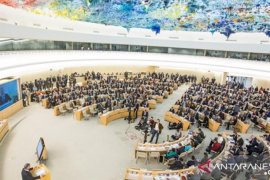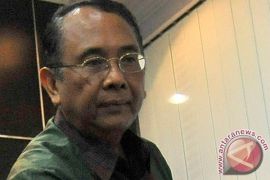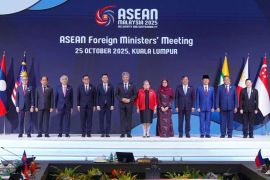The country was a member of the council two times in the past, namely in the period of 2006-2007 and between 2007 and 2010. During the two periods, the government claimed there had been improvements in the country such as the strengthening of national human rights institutions, the human rights observing capacity of central and local authorities and involvement of civil society organizations in the collective effort to promote and protect human rights.
However, some people still have doubts about Indonesia`s decision to run for membership in the UN Human Rights Council for the third time considering that the country still has a backlog of hundreds of unsolved human right abuse cases such as the activist abductions and enforced disappearance of people in 1997/1998 and the shooting of Trisakti students in May 1998.
In addition, the National Commission on Human Rights (Komnas Ham) recently reported that the number of human right violations had increased by 4,800 cases in 2008 bringing the total number to more than 5,000 in 2009 and 6,000 in 2010.
Responding to the issue, the Foreign Affairs Ministry`s Director for Human Rights Muhammad Anshor stated Indonesia`s membership in the UN Human Rights Council would be an affirmation of Indonesia`s existence as a democratic country that fully supports protection of human rights.
"The membership is also expected to improve domestic capacity in providing protection of human rights," he said.
Asked about the unsolved cases of human right violations in Indonesia which might hamper the country`s new bid for membership in the council, Anshor said even advanced countries in the world were not entirely free from human rights cases. "Promoting protection of human rights is a process," he added.
Meanwhile, the chairman of the NGO , Human Rights Working Group, Rafendi Djamin, said Indonesia`s bid fora membership in the UN Human Rights Council was a chance to improve the human rights situation in the country.
"The membership will allow us to push the government to improve respect for human rights in the country as demanded by the UN Human Rights Council of all of its members," Rafendi said in response to the concern that Indonesia still had hundreds of unresolved human right violation cases had made some parties believe that the country`s bid for membership in the UN human Rights Council was inaproppriate.
He also said the success of enforcing human rights in the country must be seen from various angles. "Though many cases have not yet been solved, enforcement of human rights has seen some progress, for example, the government in the period 2005-2008 invited a special envoy from the UN to observe the situation in the country and give recommendations on efforts to improve human rights` enforcement," he said adding that some of the recommendations from the special envoy had been become guidelines for the government to issue new regulations such as the anti-torture law which must be obeyed by all security personnel.
However, he said, all parties, namely the government, civil society and the common people need to work together to guard the process towards the improvement of human right`s enforcement in Indonesia.
Rafendi also said the government needed to act against impunity, provide more protection for people`s right to conduct religious actvities and reduce the social economic gap among people.
Indonesia had been a member ot the UN Human Rights Council twice namely in the periods 2006-2007 and 2007-2010. This time, the country is running for membership in the council the period 2011-2014.
Last April 6, a representative from Indonesia read out the government`s voluntary pledges and committments if the country was baccepted as UN Human Rights Council member. The pledges said Indonesia will continue to strengthen the human rights osbervance mechanisms at national, prvincial, district and municipal levels while also improving the level of coordination among government authorities in the spirit of strengthening human rights enforcement.
Indonesia also promises to continue to strengthen the work of the ASEAN Intergovernmental Commission on Human Rights for the promotion and protection of human rights in the region and will continue to work and fully cooperate with United Nations human rights mechanisms.
The selection process for the membership in the UN Rights Council will take place during the resumed session of the 65th General Assembly Meeting of the United Nations in New York next May 20.
Up till now, the council has 46 members namely Angola, Argentina, Bahrain, Bangladesh, Belgium, Brazil, Burkina Faso, Cameroon, Chile, China, Cuba, Djibouti, Ecuador, France, Gabon, Ghana, Guatemala, Hungary, Japan, Jordan, Kyrgyztan, Malaysia, Maldives, Mauritania, Mauritius, Mexico, Nigeria, Nirway and Pakistan.
Other members are Poland, Qatar, Republic of Korea, Republic of Moldova, Russian Federation, Saudi Arabia, Senegal, Slovakia, Spain, Switzerland, Thailand, Uganda, Ukraine, United Kingdom, Uruguay and Zambia. (*)
Reporter: By Amie Fenia Arimbi
Editor: Kunto Wibisono
Copyright © ANTARA 2011




